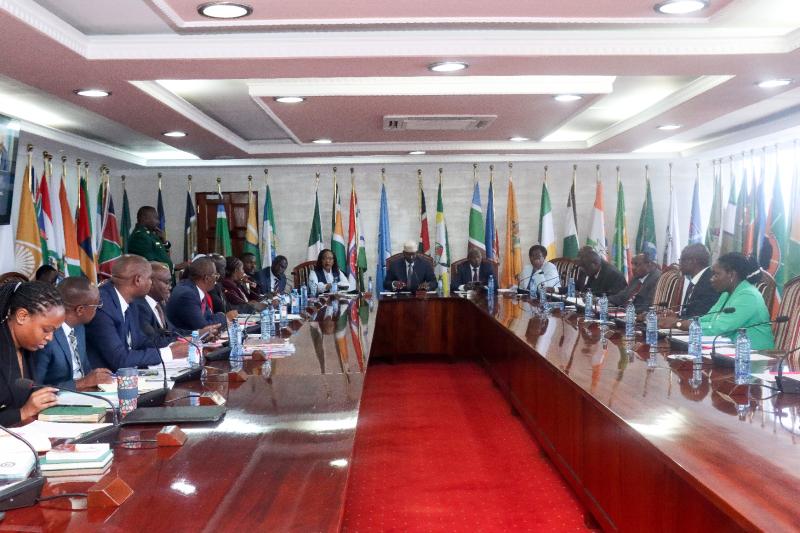Tough measures loom for counties with growing debts and audit failures

Senator Moses Kajwang’, who chairs PAC committee, said CPAC is compiling a list of counties with serious financial irregularities to recommend to the Treasury for possible withholding of funds.
The National Treasury and Senate leaders are preparing to take firm action against counties that consistently fail to manage public funds responsibly.
The move to withhold or freeze a portion of funds allocated to these devolved units comes amid growing concerns over rising debts, payroll excesses, and repeated audit failures.
During a recent session in Parliament, Cabinet Secretary for the Treasury John Mbadi met with members of the Senate’s County Public Accounts Committee (CPAC) to discuss measures to discipline counties that flout financial rules.
“I agree—a lot of what is happening in counties needs to be punished. At times, a reprimand is necessary. Some of it is outright misbehavior on the part of county governments,” Mbadi stated plainly.
Senator Moses Kajwang’, who chairs the committee, said CPAC is compiling a list of counties with serious financial irregularities to recommend to the Treasury for possible withholding of funds.
The main concerns are huge pending bills, inflated wage bills, and poor audit outcomes including adverse and disclaimer opinions.
“You’ll find a county where the wage bill is over 50 per cent. It has an adverse audit opinion or disclaimer and faces serious issues in procurement and financial management,” Kajwang’ said.
The Constitution’s Article 225 allows the Finance CS to suspend up to half of a county’s funds if there are serious or ongoing breaches of financial rules.
However, this suspension cannot last longer than 60 days, and counties must submit a recovery plan before funds can be restored.
Kajwang’ explained that withholding funds may help counties correct course where local oversight has failed. “Sometimes, that is what these counties need because the primary oversight has completely died,” he said.
He also highlighted the difficulties the Senate faces in enforcing discipline at the county level, noting, “In the Senate, we are morticians and yet the public will tell me I’m not correcting the county government, yet that is the primary responsibility of the county assembly.”
Nairobi and Mombasa were cited as counties with massive financial challenges, with pending bills estimated at Sh100 billion and Sh28 billion respectively.
“Perhaps the public’s frustration with government stems from incompetence and inefficiency at the county level,” Kajwang’ added.
Mbadi agreed that the poor state of county finances requires corrective measures. “You find counties requisitioning funds to pay for one item and redirecting the money elsewhere without explanation—leaving some bills unpaid for too long. This needs to be addressed,” he said.
Despite backing tough action, the Treasury CS urged caution. “My understanding of Article 225 is that it should be exercised as a last resort—and with extreme care,” Mbadi warned, highlighting the risk of unintended consequences if funding is stopped abruptly.
